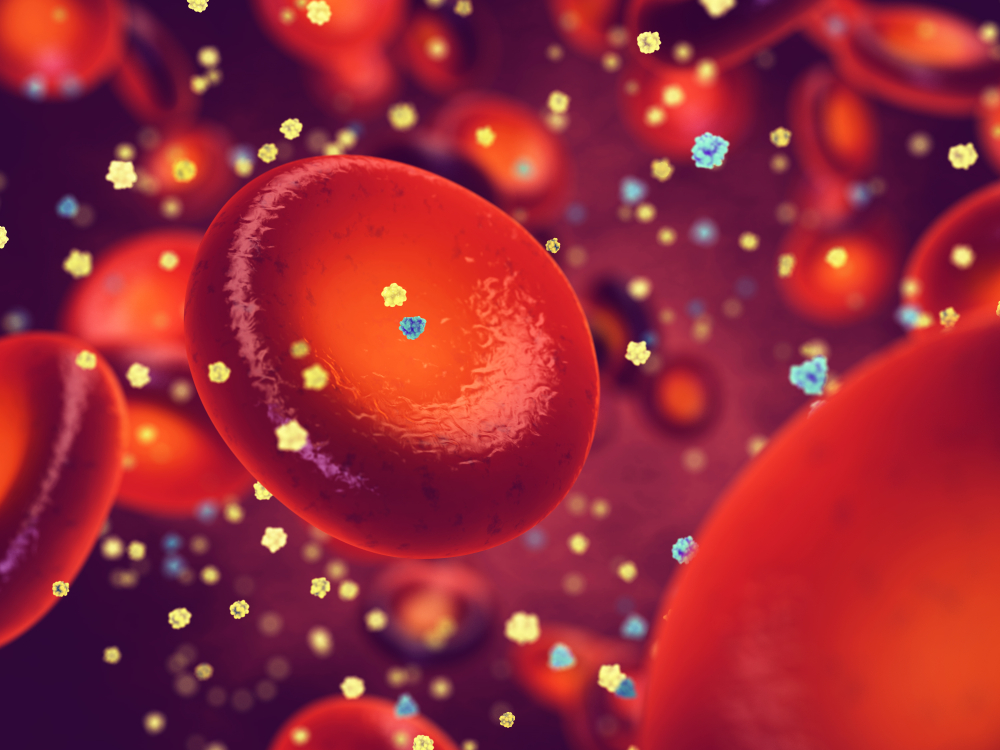
What is being tested?
Insulin is a hormone that is produced by the pancreas. Insulin helps to control blood glucose levels and plays a role in controlling the levels of carbohydrates and fats stored in the body.
When blood glucose levels rise after a meal insulin is released by the pancreas. The insulin allows glucose to be taken up by the body's cells, especially muscle cells, where is it is used for energy production. Insulin then signals to the liver to store the remaining excess blood glucose as carbohydrates and fat.
Humans need insulin on a daily basis to survive. Without insulin, glucose cannot leave the bloodstream and enter most of the body's cells. The cells starve and blood glucose levels rise to dangerous levels. Eventually, very high glucose levels lead to a life-threatening condition called a diabetic coma. In addition, excess production of alternative fuels for the brain (ketone bodies) can lead to dangerously high levels of acid in the blood (diabetic ketoacidosis).
People with type 1 diabetes produce very little to no insulin and must take insulin injections several times a day to control their blood glucose. People with type 2 diabetes usually can produce insulin and their insulin levels may even be high, but the body is not able to respond normally to the insulin. This is known as insulin resistance (see common questions below). People with type 2 diabetes may need oral medications that increase their body's cells response to insulin or that stimulate their body to produce more insulin. In long standing type 2 diabetes, the pancreas may eventually lose its ability to produce insulin and patients may also need to take insulin injections to keep their blood glucose levels normal.
Insulin and glucose levels are usually in a coordinated balance. When blood glucose is high, insulin is secreted into the blood. When blood glucose is low, insulin secretion decreases. Rarely, insulin is secreted inappropriately, that is when blood glucose is low. This may be caused by an insulin-producing tumour in the pancreas (called an 'insulinoma') or due an excess growth of insulin producing cells (Islet cell hyperplasia). This can cause dangerous hypoglycaemia (low blood glucose levels), which can lead to sweating, rapid heart beat, hunger, confusion, visual problems and seizures. Since the brain is totally dependent on blood glucose as an energy source, glucose deprivation due to excess insulin can lead to death.
How is it used?
Insulin levels may be used. often together with C-peptide levels to diagnose insulin resistance, which means the body is not responding normally to insulin and the blood glucose level may be raised (hyperglycaemia). Insulin levels are sometimes measured as part of a glucose tolerance test (GTT).
Insulin levels may also be used, often along with C-peptide levels, to help diagnose the cause of low blood glucose (hypoglycaemia), such as an insulinoma.
When is it requested?
Insulin levels are most frequently requested when a normally heallthy patient has short- or long-term symptoms of low blood glucose (hypoglycaemia), such as sweating, palpitations, hunger, confusion, visual problems and seizures (although these can be caused by other conditions). Insulin levels should be performed at the time the blood glucose is low and when symptoms are present. Sometimes a patient needs to be admitted to hospital to allow this to happen safely as part of a 72 hour fast test.
What does the result mean?
Insulin levels must be evaluated in context. If insulin levels are normal or raised and glucose levels are low, then the patient is hypoglycaemic due to excess insulin, such as due to a tumour in the pancreas that produces insulin, a so-called insulinoma.
Insulin levels may also be elevated due to injected insulin. However not all insulin tests from the different manufacturers measure injected insulin, some only measure insulin produced by the body. Your doctor should contact the testing laboratory to confirm if injected insulin is also measured by the test they use.
Common questions
No. Although glucose levels can be monitored at home, insulin tests require specialised instruments and training.
Insulin must be injected or given via an insulin pump. It cannot be given orally (by mouth) because it breaks down in the stomach.
Insulinomas are insulin-producing tumours but are most often not malignant. They are usually treated by being located and removed. Once removed, generally they do not return.
Insulin resistance means the cells of the body are not responding normally to insulin and are not able to take up glucose from the bloodstream normally. The pancreas tries to compensate by producing more insulin. This results in elevated levels of insulin and C-peptide in the blood along with normal or elevated glucose levels. Glucose, insulin and C-peptide levels may help your doctor diagnose this condition.
Insulin resistance can be part of the so-called metabolic syndrome, seen in people with abdominal obesity, high blood pressure and high lipid levels (hyperlipidaemia). In young women this can also be associated with polycystic ovarian syndrome. Insulin resistance may develop into type 2 diabetes.
Measuring insulin levels, fasting or as part of an oral glucose tolerance test, may be performed to investigate insulin resistance but there is limited evidence for this purpose or agreement among health professionals on this indication. Other indicators of insulin resistance such as waist circumference and lipid levels are more well established.
Treatment of insulin resistance involves changes in diet and lifestyle. Diabetes Australia recommends losing excess weight and getting regular amounts exercise to lower blood insulin levels and increase the body’s sensitivity to insulin.
More information
What is Pathology Tests Explained?
Pathology Tests Explained (PTEx) is a not-for profit group managed by a consortium of Australasian medical and scientific organisations.
With up-to-date, evidence-based information about pathology tests it is a leading trusted source for consumers.
Information is prepared and reviewed by practising pathologists and scientists and is entirely free of any commercial influence.